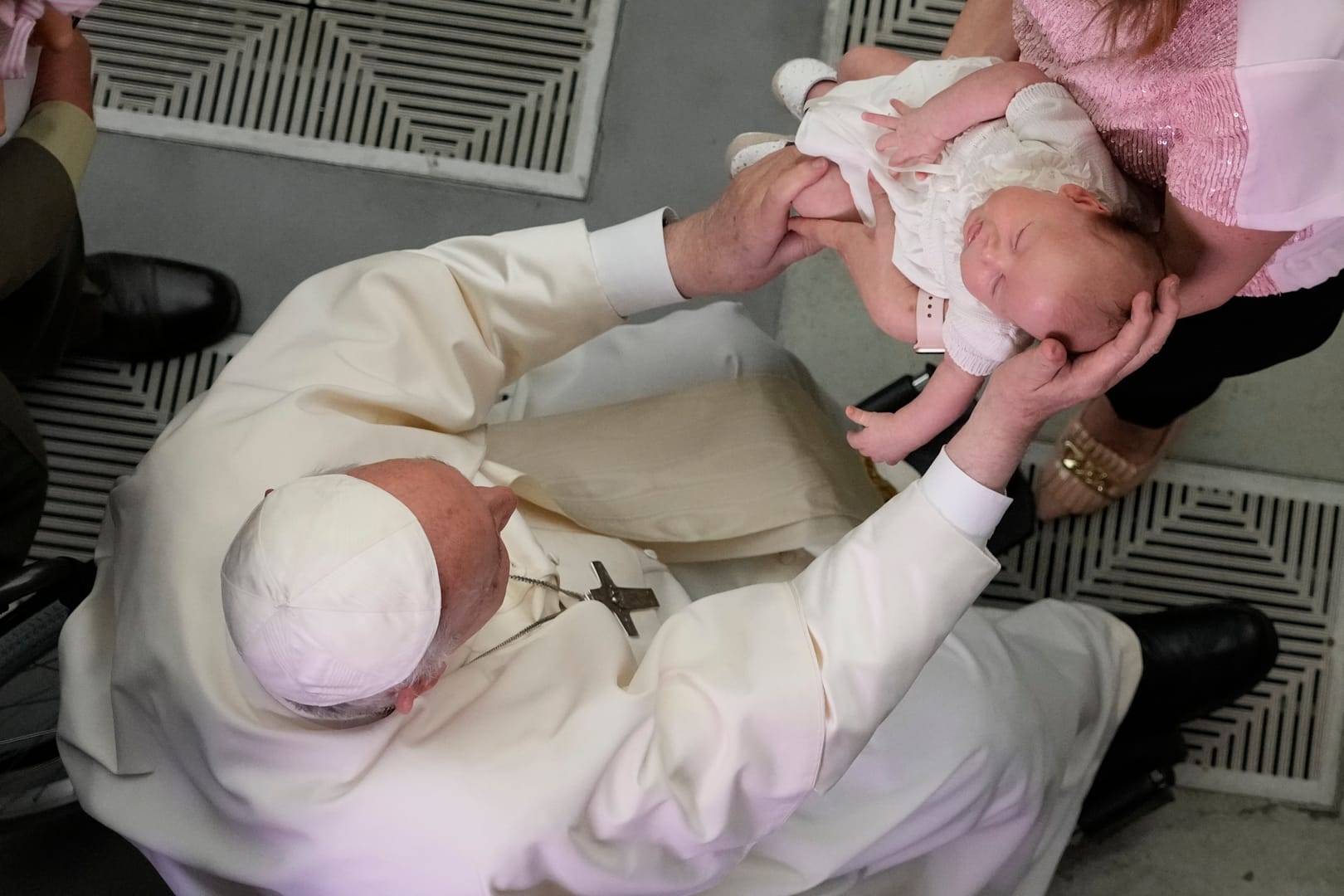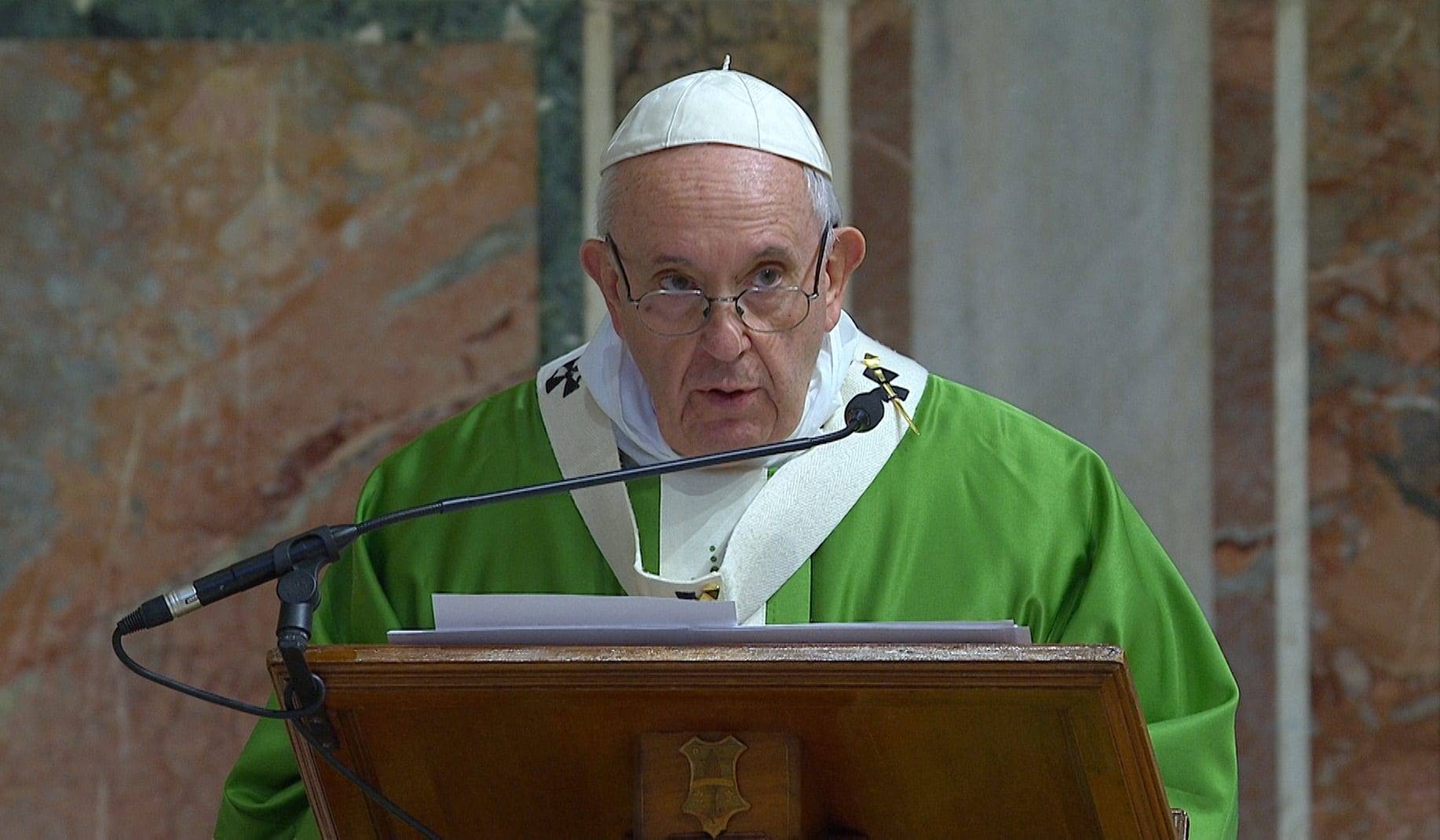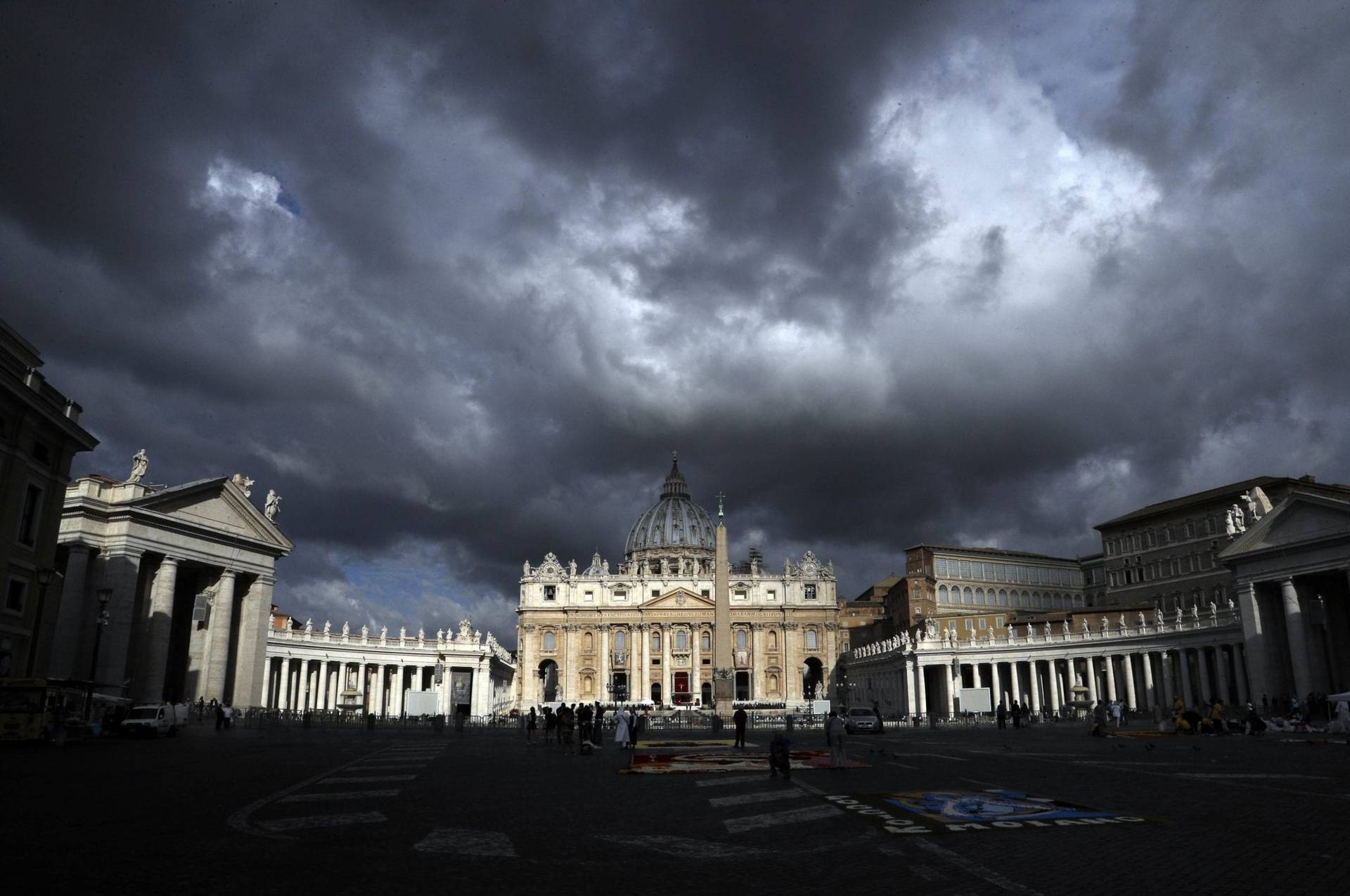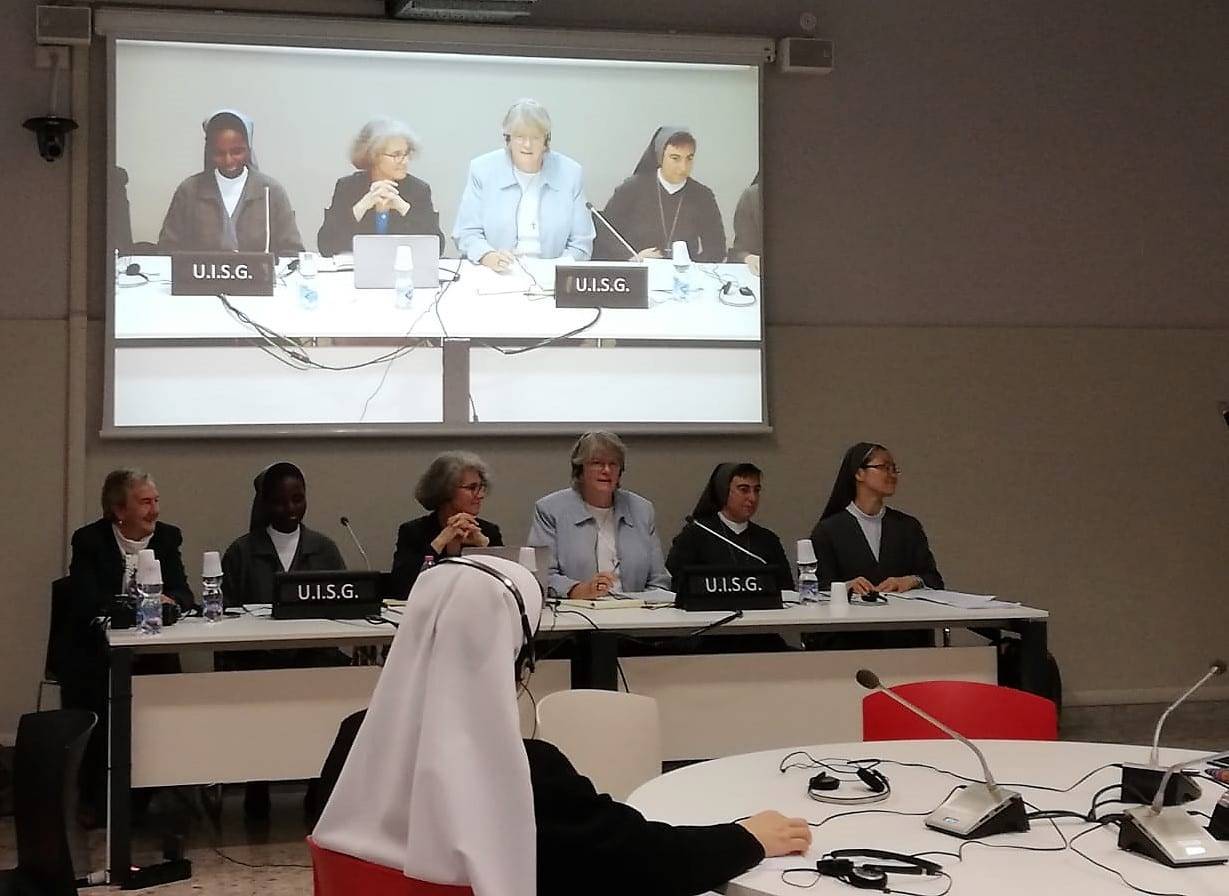ROME – As a monthlong summit of bishops in Rome enters its final week, the latest round of reports from small working groups organized by language released on Saturday suggests a growing impatience to get practical.
Topics the groups want addressed range from clerical sexual abuse scandals and justice for women in the Church, to migration, the environment, human trafficking and more.
The Synod of Bishops on young people, faith and vocational discernment is taking place in Rome Oct. 3-28, marking the third synod under Pope Francis after two dedicated to the family in 2014 and 2015.
As before, the working groups were asked to organize their reflections in terms of reactions to the Instrumentum laboris, or working document, presented shortly before the meeting.
The following are summaries of each of the small group reports prepared by Crux staff.
The Germans
The German-speaking group began by noting some concerns about where the synod is headed: “What will change after the Synod? Are there any concrete new ways to be a church with young people? Will there be commitments from the bishops?”
The group called for two specific speeches to be reflected in the final document: One by Cardinal Vincent Nichols of Westminster in the UK on human trafficking, and another by Cardinal Blase Cupich of Chicago in an appeal to political leaders.
On other matters, the Germans said:
- “We believe that the role of women in the Church in decision-making and leadership should be significantly strengthened.”
- “We want a serious discussion with young people in the Church on issues of sexuality and partnership.”
- They called for an “intent to detect and alleviate specific youth problems in the diocese (for example, hidden or open poverty, drug addiction, juvenile delinquency, adolescent migrants, victims of abuse and violence).”
- They also called the Church to a “concrete intention to meet regularly with young people, especially with less privileged young people.
They also made suggestions on several topics, including catechesis through Youcat family books, adolescents’ commitment to ecology, youth participation in the Church, subsidiarity in the Church, and movements, the arts, and associations as places of being Church.
Finally, the Germans also addressed the clerical sexual abuse scandals in Catholicism.
“We believe the final document cannot begin without a clear word about the drama of sexual abuse of children and adolescents,” they said. “And we also think that we bishops cannot go home without the firm intention [expressed here] of concrete changes to provide better prevention and better care for victims.”
English-speakers
Multiple suggestions were made among the English speakers that as the synod reaches to a conclusion, the process would be well served by replicating the experience on a local level, be it through the work of episcopal conferences, dioceses, or parishes.
The final section of the working document focuses on practical instructions and recommendations for pastoral action, and Group A, led by Cardinal Oswald Gracias of Mumbai, offered detailed bullet point suggestions, including practical resources for parents and grandparents “as the ‘first teachers’ of the young,” greater attention to teacher formation and chaplaincy programs at Catholic schools and universities, and more participation of young people in liturgy and Church activities that give them real decision making power.
The group also discussed the need to re-imagine parishes around “a threefold experience of Church – as ‘mystery’, ‘communion’ and ‘mission.’” They noted that one realization to come out of the synod is that young people are not merely the objects of evangelization, but also agents.
Two groups discussed outreach to youth with same-sex attraction and gender dysphoria.
Group B led by Cardinal Blase Cupich of Chicago proposed “a separate section for this issue and that the main objective of this be the pastoral accompaniment of these people which follows the lines of the relevant section of the Catechism in the Catholic Church.”
Group D led by Cardinal Daniel DiNardo of Houston-Galveston added: “no one, on account of gender, lifestyle, or sexual orientation, should ever be made to feel unloved, uncared for. However, as St. Thomas Aquinas specifies, love means ‘willing the good of the other.’ And this is why authentic love by no means excludes the call to conversion, to change of life.”
Lastly, multiple recommendations were made to encourage bishops and priests to use the digital media as means of outreach insisting that it is the best mechanism at their disposal to reach a new and often unchurched audience.
“A video posted on YouTube or Facebook is permanently available 24 hours a day, seven days a week—and it can find its way into the most remote and even hostile corners of the contemporary world. We feel that a particularly fruitful method is to create materials that identify semina verbi (seeds of the Word) within both the popular and the high culture,” they wrote.
The Italians
Italian groups largely focused on the need to adequately meet the challenges youth face and to answer their questions on the bigger topics, such as sexuality, abortion and marginalization, especially of women and the poor.
The first group, led by Cardinal Angelo De Donatis, vicar of Rome, and Archbishop Vincenzo Paglia, head of the Pontifical Academy for Life, used the biblical image of the multiplication of the loaves as an example of the centrality of Jesus to the faith.
More attention ought to be given to this centrality of Jesus, they said, noting that, like the multiplication of the bread, he is able to work miracles with the little that was offered to him.
Group members said the third section of the document, while naming many possibilities of involving young people in parish life, risks making “a long list without priorities,” and offered four points of reflection: the primacy of the Gospel, ministry to the poor, a greater emphasis on formation and the Eucharist.
Ministry to the poor, they said, “is not a question of reorganizing a system of volunteer service or a subsidiarity of welfare. The Christian message is essentially a witness of the salvific closeness of God to every man.”
The second group was led by Cardinal Fernando Filoni, prefect of the Vatican’s Congregation for the Evangelization of Peoples, and Archbishop Bruno Forte, a member of the synod’s organizing council.
Group members said the synod’s working document so far had an overly Western approach, but still failed to adequately address issues such as the benefits/challenges of the digital world, the relationship between faith and science, and a widespread “social, spiritual and ethical disorientation.”
Specific challenges they pointed to were instances of marginalization, specifically of women, who “are often victims of a machismo strong enough to kill,” as well as those impacted by drug addiction and physical or spiritual suffering.
Mention was made of the need to give “special attention and accompaniment” to those with same-sex attraction, and challenges presented to young people by unemployment and a lack of job opportunities in their areas of study.
Ethical questions such as those related to sexuality, abortion, social and ethnic exclusion, were also mentioned, as was the influence of the occult, “which has an influence on young people that should not be underestimated.”
The third group, led by Cardinal Gianfranco Ravasi, head of the Vatican’s Council for Culture, and Bishop Pietro Maria Fragnelli of Trapani, focused on four key areas: the search for happiness in listening to oneself and the Word of God, the need to put the person at the center, recognizing the journey each person has to make, and care for the environment.
Other areas they emphasized were the importance of Marian devotion, the need to develop programs of accompaniment and discernment, the need for a better biblical and theological formation outside of academic institutions, the use of technology, the importance of service, and the need to help young migrants, particularly “at home,” and through local churches.
Mention was also made of the need to provide better formation and accompaniment for young couples, both those who are engaged and those recently married, and the need to overcome discrimination.
French-speakers
Group A of the French speakers, led by Archbishop David Macaire, insisted that going forward youth ministry should not be considered independently from pastoral care.
They went on to note that it would be have been beneficial to have parents and young people together alike at the synod, along with young couples, to provide testimony on “how they sought to live their sacrament of marriage and the education of their children.”
Another group highlighted that in addressing the pastoral concerns of young people, it is important to remember “the life of a young person aged 16 to 30 is not linear.”
“She is marked by successes, failures, and decisive and happy milestones such as passing an exam, a first job, founding a couple and a family,” the group observed.
Their suggestion was that the Church be mindful that spiritual resources necessary to meet such needs should not be formulaic.
Two different groups insisted that while the theme of the synod may be young people, that is critical that they not be entirely separated out from the broader life of the Church, as pastoral conversion and renewal is the aim of the whole Church.
“Therefore, before addressing them, would it not be necessary to show that all members of the Church are called to walk together in the footsteps of the Lord Jesus and progress in the life of grace?” they asked. “The term synod, doesn’t it mean walking together?”
Similarly, another group noted that it is important to have real decision-making power and responsibility “in the functioning of the institutions of the community, parish or diocese.”
Even so, however, they rejected the idea that the Vatican needs a separate dicastery focused specifically on young people, as it “would risk increasing their isolation.” Instead, the recommendation was put forward that it become standard practice for all dicasteries to listen to and integrate young people into their work.
Finally, it was suggested that young people become empowered to better serve as transmitters of the Church’s social teaching to make “possible the dialogue of the Church’s faith with these new cultural paradigms, not by favoring the clerics of the Church on these subjects, but by forming the young people of the Church who will be able to be actors to know and dare to account for the hope that is in them.”
“That’s how, gradually, the image of the Church of Christ as a friend of the world will change,” they concluded.
Spanish-speakers
The group Hispanicus B, led by Cardinal Luis Ladaria Ferrer, a Spaniard and head of the Vatican’s Congregation for the Doctrine of the Faith, wrote that the Church must assume a “welcoming and cordial attitude” to encourage the integration and accompaniment of all people, “including those of different sexual orientations, so that they can grow in faith and in their relationship with God.”
A welcoming attitude, however, does not mean a change in the Church’s teaching on sexuality. On the contrary, the group suggests that the “corresponding” Vatican office develop an “orientation” that systematically and clearly approaches the issue of sexuality, with anthropological arguments, “accessible to all young people, showing that the virtue of chastity is a joyful affirmation that creates the conditions for human and divine love.”
Speaking about women, the group wrote that they “value” the place they have in the Church and recognize that they have “equal dignity with men.” As such, both feminine and masculine contributions should be considered in the Church’s pastoral programs, as they “complement each other and make the life of the whole community fruitful.”
For the same reason, they write, the group proposes a “greater participation of women in pastoral discernment by actively collaborating in decision-making situations.”
When it comes to new technologies, the group writes that for young people there’s no difference between “virtual and real,” and the Church must assume in a “determined way” all this virtualization.
In addition, the Church must help young people who are victims of online crimes, from child pornography to cyber-bullying, providing support for victims and producing materials of awareness and training, promoting a “responsible digital citizenship.”
The group also proposes that the practice of “synodality” become a permanent feature in the life of the Church, promoting the participation of all the baptized and people of good will, “each according to their age, state of life and vocation, making effective and real the active participation of young people in each diocese, Episcopal Conference and the universal Church.”
Much like the first Spanish group, led by Honduran Cardinal Oscar Rodriguez Maradiaga, they also underlined the need for young people to be not only “receptors” but protagonists in the mission of the Church, as they too are called to “evangelize, to communicate the good news of the Lord.”
This group also spoke about “conversion,” questioning “whose? to what? from where?” meaning that the call to conversion should not be critical of what has been done, as if everything “has been bad,” but to look for the “plus,” aspiring to be better and to serve more. This, they say, requires “listening, going out, discernment, accompaniment.”
Hispanicus A also acknowledged that the pews of the churches are empty, and diagnosed that this is due to a lack of harmony with the people, particularly young people. Their concrete suggestion was to make the liturgy more participative, with better songs and perhaps even a revision of the prayer formulas.
“If young people abandon the celebration of the Eucharist, it is a first symptom of them losing their faith,” they wrote.
Portuguese-speakers
The Portuguese speaking group, headed by Brazilian Cardinal João Braz de Avis, wrote that globalization has produced a change of eras which, even though it has positive effects, also generates a “wounded” society that challenges the Church to recover its “prophecy,” in order to promote an “inclusive Church and society, so that no one is left out.”
They acknowledged the importance of the various expressions of “popular piety,” such as pilgrimages and visits to shrines, that can attract young people and express their faith, but there’s also a need for spaces where young people can discover the Church’s doctrine and morals, accompanied with pastoral charity.
“Popular piety ‘is a legitimate way of living the faith’,” they wrote, quoting Pope Francis, and adding that it has a great “evangelizing force.”
The group also suggested a global “council” or observatory of youth, in addition to the Vatican’s Dicastery for Laity, Family and Life, which, in practice, includes ministry to young people.
The group approved 25 suggestions touching several themes, though they don’t delve into their content. Among them is a network for youth ministry; young people with disabilities; young people in prison; pastoral care for homosexual young people; youth missionary experiences; and Mary and the young.
















